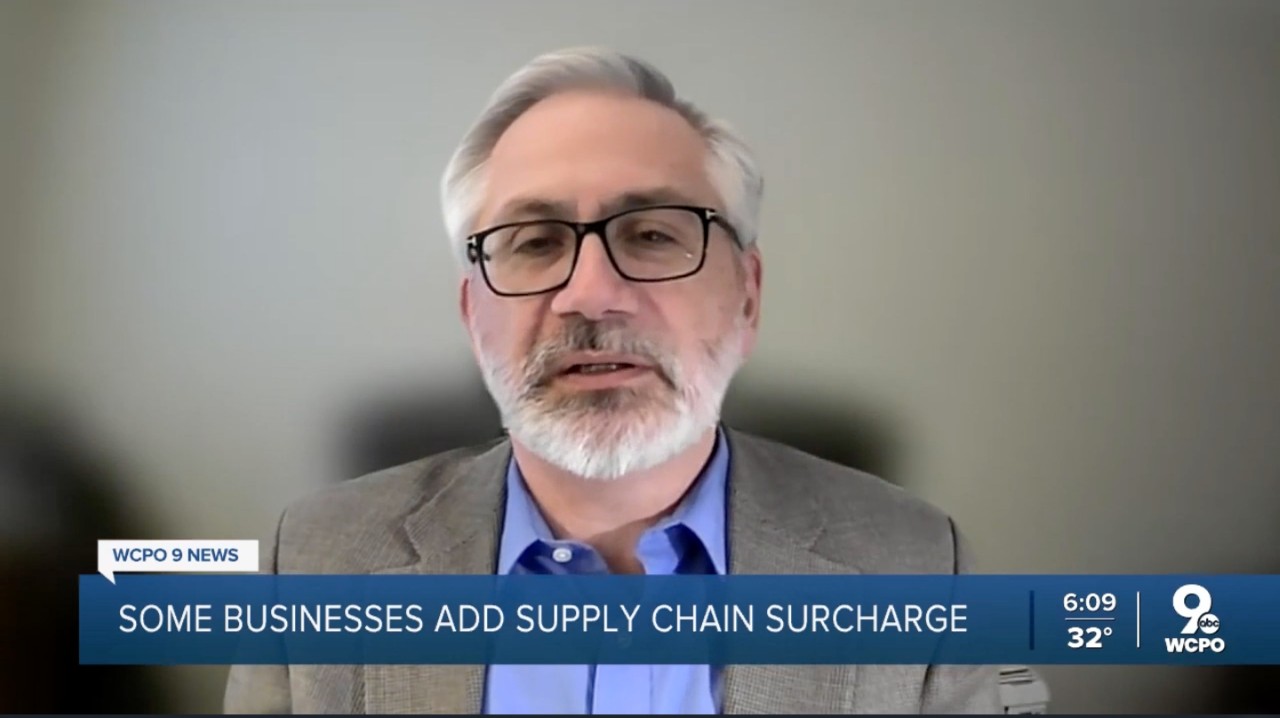
UC associate dean says supply chain issues likely to be resolved this year
Restaurants implement surcharges to deal with current problems, WCPO reports
Supply chain issues likely will be under control by the end of 2022, Chuck Sox, the associate dean of impact and partnerships for the University of Cincinnati Carl H. Lindner College of Business, told WCPO.
“I think by the end of 2022, things will be fairly normal… but I think a big component to answer that question is how quickly we get the pandemic under control,” Sox said.
For now, WCPO’s Mariel Carbone reported, restaurants such as Taste of Belgium have implemented temporary surcharges to cover increased costs and challenges in getting the right supplies.
“It only takes a few people or a few products or a few shipments to be off to really disrupt an entire supply chain,” Sox said.
Featured image: UC supply chain expert Chuck Sox. Screenshot courtesy of WCPO video.
Impact Lives Here
The University of Cincinnati is leading public urban universities into a new era of innovation and impact. Our faculty, staff and students are saving lives, changing outcomes and bending the future in our city's direction. Next Lives Here.
Related Stories
Everything you need to know about scents and your hair
May 1, 2025
The University of Cincinnati's Kelly Dobos was featured in an NBC News article discussing the science behind hair fragrances and shampoos.
A farewell for the iconic Crosley Tower
May 1, 2025
The Cincinnati Business Courier reports that UC Board of Trustees approved $47.3 million for remediation and demolition of Crosley Tower. There are mixed feelings about what has been dubbed by some as the ugliest building on a U.S. college campus.
Most teens prescribed SSRIs did not have recommended follow-up...
April 30, 2025
The University of Cincinnati and Cincinnati Children's Hospital Medical Center's Martine Lamy commented to Medscape on new research that found fewer than half of the adolescents prescribed a selective serotonin reuptake inhibitor (SSRI) at two large Chicago pediatric primary care clinics had a follow-up visit within the recommended 6 weeks.
